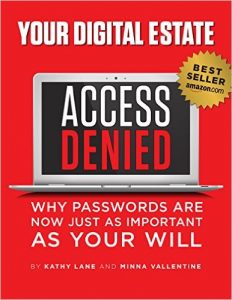A Ca nadian, Peggy Bush, widow tried to get her deceased husband’s Apple ID password so she could continue to use apps that resided on their shared iPad. She ended up being told by Apple support that she would have to produce a court order first.
nadian, Peggy Bush, widow tried to get her deceased husband’s Apple ID password so she could continue to use apps that resided on their shared iPad. She ended up being told by Apple support that she would have to produce a court order first.
Her daughter took up the fight and, after several weeks of customer support calls, writing to the CEO and going to the media with the story, Apple finally agreed “to help the family with their issue”. Sounds good, right. The problem is nobody is sure what this means. Will Peggy get access to her husband’s account? Nobody knows.
If this issue comes as a surprise to you, it shouldn’t. Apple and most other companies have license terms that are quite clear. There are no rights of survivorship. In other words, when you die, your account dies with you. In Apple’s terms: “unless required by law, you agree that your account is non-transferable and that any rights to your Apple ID or content within your content terminate upon your death. Upon receipt of a copy of a death certificate, your account may be terminated and all content within your account deleted.”
When most people are trying to get their affairs in order, they think about the tangible things they own. They don’t think about their digital estate and how to provide access to online accounts for their heirs.
Although it is stated as not being legal in the terms and conditions of most online accounts, providing the user name and password for each account will enable your executor or other family member to access your accounts, close them, transfer date or even continue to use them.
To get more information about how to manage your digital estate, check out this book: ACCESS DENIED. You’ll not only find valuable help but worksheets you can use as well. Don’t leave a mess for your family. Get all of your affairs in order now, including those related to your online life.

Recent Comments